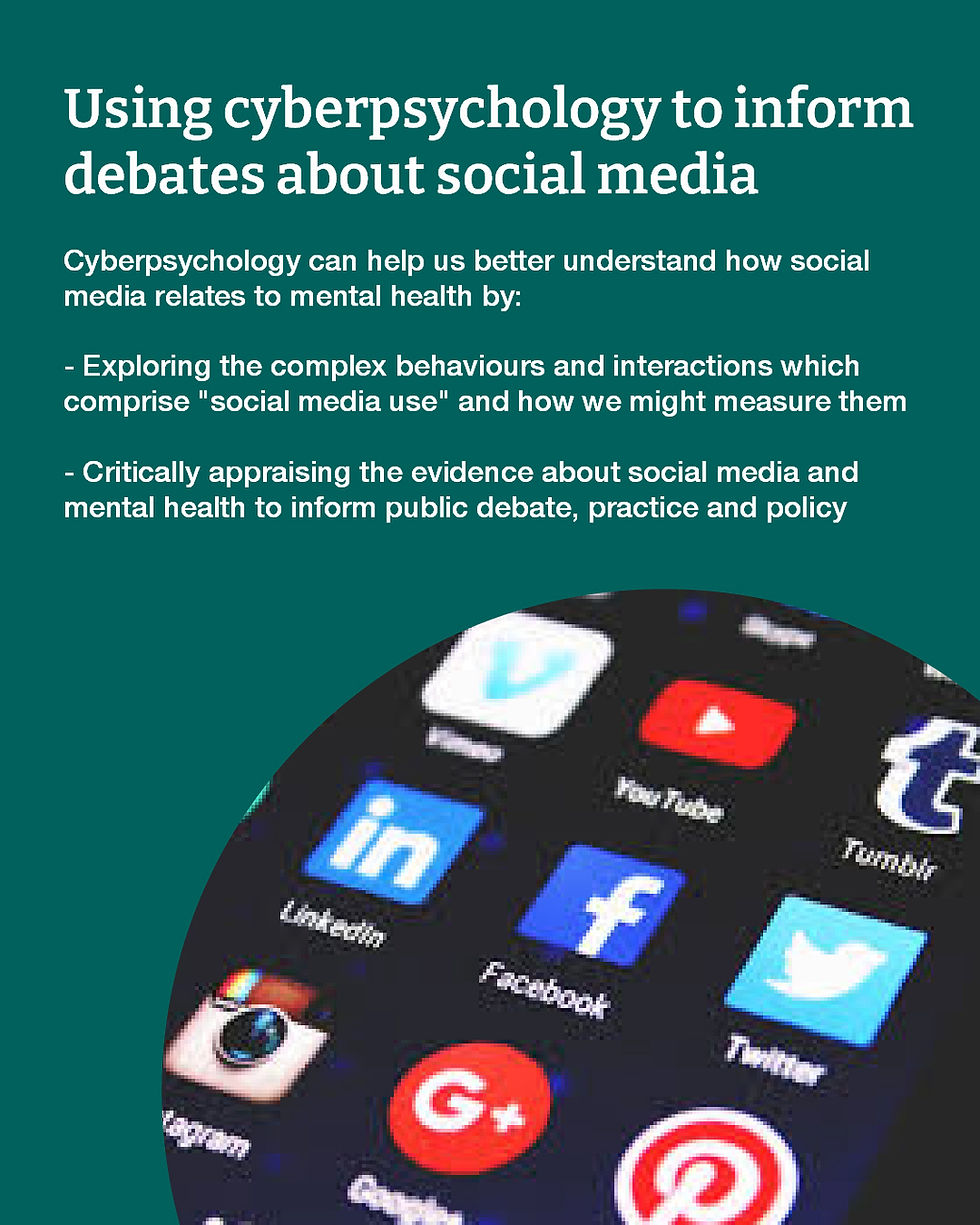Reflecting on public engagement in research
- LindaKKaye

- Feb 2, 2017
- 3 min read
Public engagement is something we’re all told is important for “research impact” (whatever that means). However, this is often considered to be bit of a hassle and considered to take time away from the “important stuff” (i.e. writing papers). Let me give you an example of why this isn’t always the case.
My colleagues (the fabulous duo of Dr Helen Wall and Dr Stephanie Malone) and I had published a number of studies on the psychology of emoji, and our press office suggested we write a piece for “The Conversation”. Our Institution (Edge Hill University) had recently subscribed to this and was encouraging as many people as possible, to engage with it. Going along with this suggestion, we wrote a piece on “What does your emoji say about you?” which more or less summarised the main gist of our research.
This received more than a quarter of a million hits within a month of it being published and importantly, was picked up by the editor of a highly respected journal in psychology; “Trends in Cognitive Science”. The editor wrote to us, citing that she had read our Conversation piece and was commissioning us to write an article for her journal on this topic. Excitedly, we wrote the piece which was promptly accepted by the journal (following some revisions). The journal was very proficient at arranging their Press team to develop a press release with us, and this was prepared ready to be sent out with the publication of the article in January 2017. Within the first week of the press release going out, we had received multiple media requests for interviews, including high profile outlets such as CNN and Wall Street Journal, who wanted to know more about emojis and what they say about us. Interesting, it was from speaking to the press which helped us realise some other important research questions we should be asking, and thus we have framed our future research ideas with these in mind.
Additional to this, it is because of this media attention that private commercial organisations have subsequently been in contact and have been making enquires about partnerships, in which they may benefit from psychological insights into emoji-based communication on their products. These opportunities are immensely useful, and certainly can make a concrete route for commercial impact.
Clearly, this is one example in which public engagement is complimenting the research process, rather than hindering it. We do acknowledge that we have been very lucky to have received such a warm reception of our research, but it isn’t always so easy. However, I would suggest it to be very useful to engage in public engagement activities, even if it helps you “dumb down” your research for a non-specialised audience, which can be a helpful process in itself. In particular, this can help you re-capture the essence of your research rather than getting bogged down in the academic conventions and processes which often can stifle our creativity and innovation.
I would highly recommend The Conversation as a platform to achieve this endeavour. Not only as this has been successful for me personally, but their team are very receptive to collaborative working and are highly supportive in all stages of the writing and publication of the work. In the wider scheme of things, in a world where “fake news” and biased media portrayals appear to be the norm rather than the exception, having our expert voices heard through outlets such as The Conversation is a refreshing change.



Comments